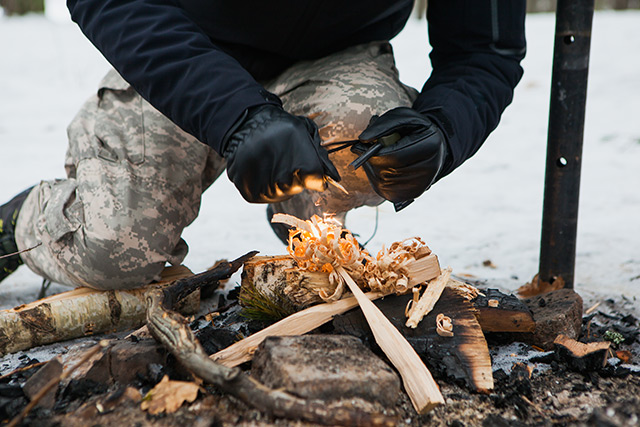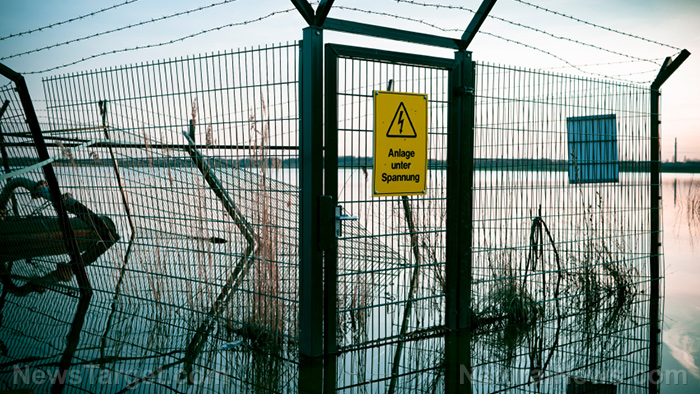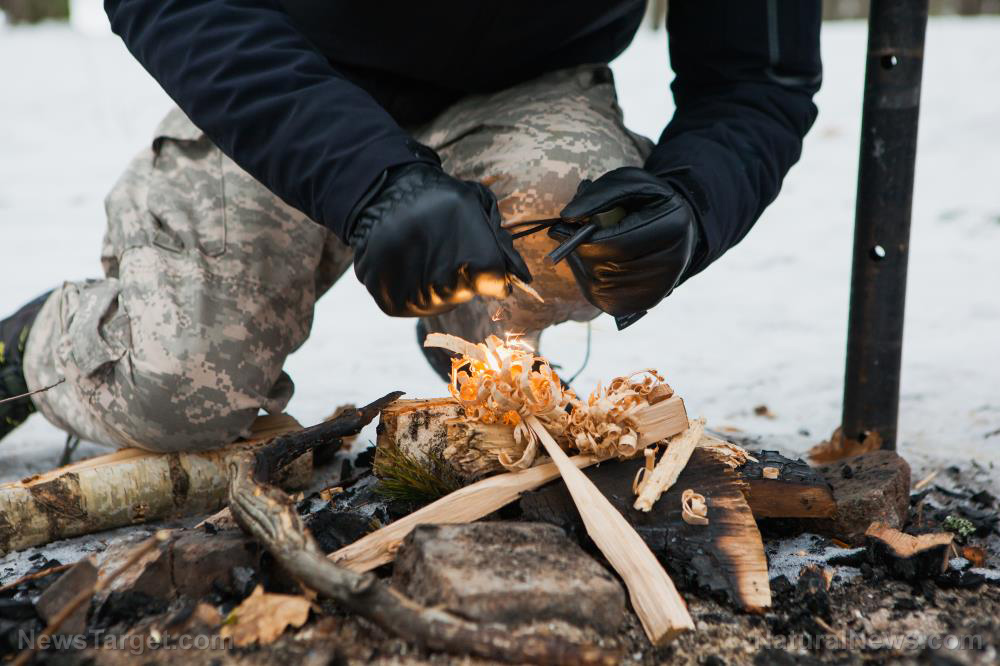Everyday small decisions that have a huge impact on your survival
10/17/2018 / By Zoey Sky

The prepping lifestyle isn’t all about gear, food supplies, and bushcraft skills — although those are always crucial to your survival. Prepping also encompasses everyday situations like air travel, driving skills, or even the contents of your wallet.
Listed below are some small yet important decisions that you make daily and how they can affect your survival when SHTF. (h/t to BackdoorSurvival.com.)
Hygiene and washing your hands properly.
Always wash your hands. Don’t rush this important habit, and take at least 15 seconds as you scrub everything from the wrist down. Make it a habit to wash your hands thoroughly before eating food or touching your face. Wash your hands after you’ve been to any public place.
If you’ve visited germ-infested locations like the doctor’s office or school, use the heavy-duty hand washing protocol and wash from the elbows down for about 45 seconds.
Keeping money on hand.
Credit or debit cards are convenient, but it’s important to keep some cash on hand at all times. You’ll never know when the power’s going to go out or when banks will experience a system glitch. When this happens, you’ll need money to pay for food or supplies. (Related: Practice makes perfect: Choose to live like a survivalist before it becomes a necessity.)
Double-checking your EDC.
Once you leave your house, you’re exposed to danger no matter where you go. This is why you need to check your Everyday Carry Kit (EDC) so you have what you need for minor emergencies. Keep items like a multi-tool, some paracord, and a windproof lighter in your EDC at all times because there’s no such thing as overpreparing for any disaster.
An EDC can also include your daily attire. Are your shoes comfortable enough to run in? If you need to wear formal clothing to school or work, avoid wearing high-heeled shoes that can make escape impossible when SHTF.
Practicing your driving skills.
Even people who don’t know about prepping are aware of the importance of proper driving skills. A car accident is an SHTF scenario, and you can easily avoid one if you pay attention to traffic laws and signs. Avoid distractions when driving and keep your eyes on the road.
Putting gas in your car and stocking up on other supplies.
A fully packed bug-out bag (BOB) is useless if you don’t have any gas in your car. Keep your gas tank at least half full so you can get out of town immediately when SHTF. You’ll also need your car for other scenarios, such as an emergency trip to the hospital.
Aside from gas, other basic supplies that you need to prioritize include drinking water and extra food for your pantry. Finally, keep your phone fully charged so you can stay call for help or stay in touch with loved ones during a disaster.
Choosing your seat on an airplane.
Did you know that your seat position on a plane can lower your risk of getting infected? According to a study by researchers from Emory University and Boeing, even if you don’t know which passenger on a plane is sick, it’s easier to prevent infections by taking a seat by the window.
Data from the study revealed that by sitting near a plane window, “you’re less likely to catch something from the people walking by.” It’s also better to stay in your seat so you’re exposed to as few people as possible. Longer flights and more communicable diseases increase your chances of infection.
Knowing where the exit is.
Prepping doesn’t mean living like a paranoid hermit to avoid disaster or accidents. If you’re at work or anywhere public, it’s always good to know where the exits are.
As a prepper, you can still enjoy traveling and being in public areas. You just need to be mindful of your surroundings so you can stay safe if you suddenly need to evacuate.
Most of these tips are just based on common sense, but it’s not as common as you might think. Apply your prepping know-how to daily decisions so you can stay safe even when minor emergencies occur.
You can browse more articles about daily decisions that can influence your survival when SHTF at Preparedness.news.
Sources include:
Tagged Under: air travel, bug in, bug out, bugout bag, Collapse, daily decisions, disaster, driving, EDC, emergencies, everyday carry kit, off grid, preparedness, prepper, prepping, road safety, SHTF, survival, survival supplies, Survival Tips, survival tools, survivalist



















